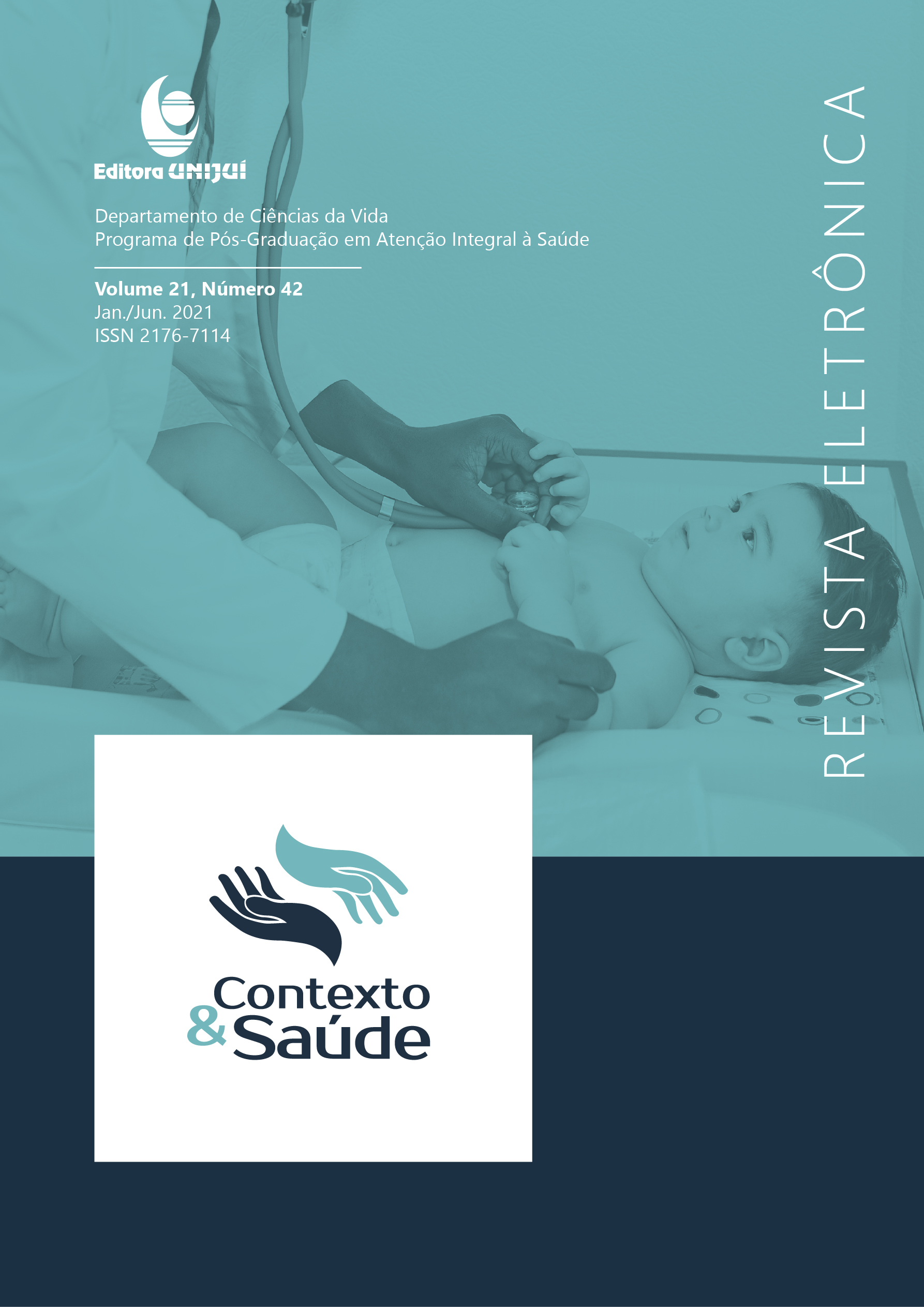Effects of the Thoraco-Abdominal Rebalancing Method on the Cardiorespiratory Function of Premature Infants with Respiratory Distress Syndrome
EFFECTS OF THORACOABDOMINAL REBALANCING METHOD ON CARDIORESPIRATORY FUNCTION OF PREMATURE INFANTS WITH RESPIRATORY DISTRESS SYNDROME
DOI:
https://doi.org/10.21527/2176-7114.2021.42.11436Keywords:
Palavras-chave: Doença da Membrana Hialina; Síndrome do Desconforto Respiratório do Recém-Nascido; Recém-Nascido Prematuro; Neonatologia; Fisioterapia; Pneumologia.Abstract
Resume
Objective: To evaluate the effects of the thoracoabdominal rebalancing method on the cardiorespiratory function of premature infants with Respiratory Discomfort Syndrome. Methods: Non-randomized clinical trial. The newborns participating in the study were divided into two groups. Group 1 received the handling of the thoraco-abdominal rebalancing method: support in the ileo-costal space, lower abdominal support and thoraco-abdominal support. Group 2 received treatment that consisted of stretching the accessory muscles of breathing and mobilizing the scapular belt. Both groups were assessed before and after treatment. The assessment consisted of verifying peripheral oxygen saturation, heart rate, respiratory rate and degree of respiratory distress from the Silverman-Andersen Bulletin. Results: 14 newborns participated in the study. There was a significant increase in peripheral oxygen saturation in newborns submitted to thoracoabdominal rebalancing (p-value = 0.04) and a significant increase in heart rate in newborns who received the control treatment (p-value = 0 , 01). There was no statistical difference in the intergroup relationship and in the other factors assessed in the intragroup analysis. Conclusion: The thoracoabdominal rebalancing method produced positive effects on the peripheral oxygen saturation of newborns diagnosed with Respiratory Discomfort Syndrome, without influencing the parameters of heart rate, respiratory rate and degree of respiratory distress. Thoraco-abdominal rebalancing did not demonstrate superiority to the control treatment except for peripheral oxygen saturation.
Downloads
Published
How to Cite
Issue
Section
License

This work is licensed under a Creative Commons Attribution 4.0 International License.
By publishing in Revista Contexto & Saúde, authors agree to the following terms:
The works are licensed under the Creative Commons Atribuição 4.0 Internacional (CC BY 4.0) license, which allows:
Share — to copy and redistribute the material in any medium or format;
Adapt — to remix, transform, and build upon the material for any purpose, including commercial.
These permissions are irrevocable, provided that the following terms are respected:
Attribution — authors must be properly credited, with a link to the license and indication of any changes made.
No additional restrictions — no legal or technological measures may be applied that restrict the use permitted by the license.
Notes:
The license does not apply to elements in the public domain or covered by legal exceptions.
The license does not grant all rights necessary for specific uses (e.g., image rights, privacy, or moral rights).
The journal is not responsible for opinions expressed in the articles, which are the sole responsibility of the authors. The Editor, with the support of the Editorial Board, reserves the right to suggest or request modifications when necessary.
Only original scientific articles presenting research results of interest that have not been published or simultaneously submitted to another journal with the same objective will be accepted.
Mentions of trademarks or specific products are intended solely for identification purposes, without any promotional association by the authors or the journal.
License Agreement (for articles published from September 2025): Authors retain copyright over their article and grant Revista Contexto & Saúde the right of first publication.

